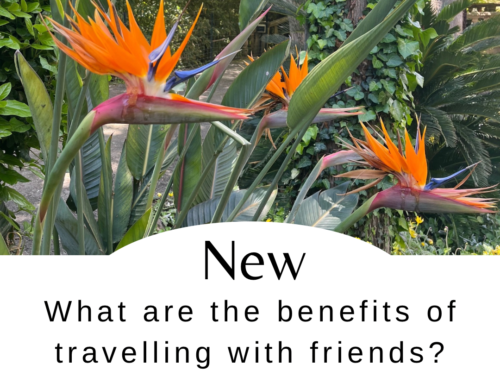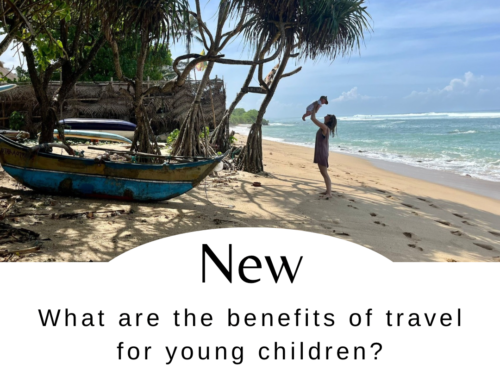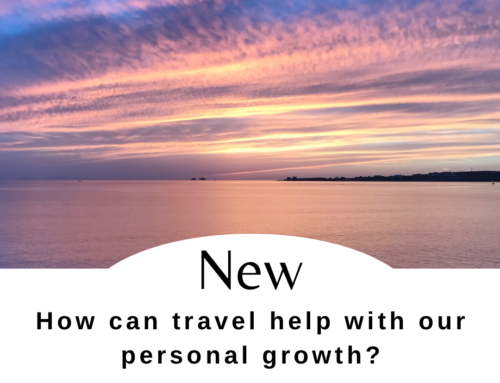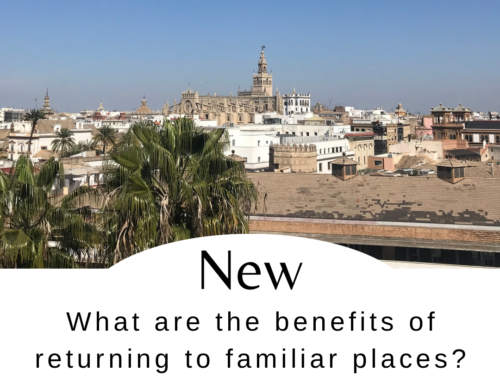Dr Charlotte Russell, Clinical Psychologist & Founder
As a both a clinical psychologist and a travel enthusiast, I believe travel can help to improve our relationship with ourselves. I think that travelling can help us to get to know ourselves and to tune in to our true desires and preferences. It’s not easy to explain how or why this happens as these are not concepts that are easy to describe or to measure. However in this article I’m going to do my best to describe this process.
Understanding our motivational systems
Humans are a very complicated species and it can be difficult to make sense all of the factors that drive us. However, if we look to simpler species, we can start to understand some of the systems that underpin aspects of our behaviour.
A key part of this is understanding the distinction between our appetitive and aversive systems. Our appetitive system is our inbuilt drive to gain resources that are necessary for our survival, and things that are pleasurable. This might include food, water, comfort and sex. Our aversive system on the other hand is our instinctive drive to avoid anything that may be uncomfortable or dangerous to us.
A good way to think about this is to imagine a rabbit; the appetitive system will drive the rabbit to come out of its burrow and explore, to look for carrots and to find mates. The aversive system on the other hand will prompt the rabbit to stay in its burrow and to hide away when it senses danger. In ideal circumstances these two systems will be well balanced; the rabbit will seek resources when it is safe to do so, and will hide away when it correctly senses danger.
The interaction between these two simple systems grows much more complicated when we add in our emotions, relationships with others, and expectations from our families and cultures. We may have our natural desire to eat, for example, but this may be at odds with our desire to conform to societal pressures to look a certain way, and we may experience guilt and shame around eating certain foods which we perceive to be unhealthy. So something as simple as eating can become very complicated!
A key part of the work of any psychologist involves helping people to understand some of the difficult emotions that they may be experiencing, and to get in tune with what they personally may truly value. When we know and understand what is important to us, it makes it clearer to navigate some of the difficult situations that come up in life, although of course this is not always easy.
We know that difficult and traumatic experiences will often lead to our aversive systems becoming more dominant and at times over-reactive, and this can understandably lead to us making choices to protect ourselves, rather than behaving in line with what is important to us. It can also lead us to being less in tune with our own bodies and intuition. There are many therapeutic techniques which ultimately help us to feel safe and to get back in tune with what is important to us and our own needs. It can take some work to distinguish what is really important to us for us personally, underneath what we may perceive to be important based on what societal messages and expectations.
When we look to neuroscience, we understand that when simpler organisms are need to respond repeatedly to something unpleasant, they become primed to responding in this way. In the brain, physiological and chemical processes occur that mean the neural pathways that are used repeatedly become stronger. In humans, the picture is more complicated. However, I believe we can certainly get into the habit of responding aversively to life, rather than consistently living in line with our values. This pattern can be difficult to break, until we have an opportunity to reflect and respond differently.
An example
Let me give an example to illustrate. Let’s say you start a new job and you are incredibly proud to have been offered the position. You walk into work each day with your head held high, you generally get on well with your colleagues, you see the work as valuable and there are opportunities for you that fit with your particular needs at that time in your career. Of course there are stresses and difficult challenges to face within your role but you see these as learning opportunities, and they are manageable because there are so many positive things within your role. This is a good example of operating from appetitive control; you are going to work for all of the things that it offers that are valuable to you.
Now let’s say it is five or ten years later. The culture at work has changed, and there is more of a focus on tasks and targets than supporting and developing people. You feel stuck and you haven’t progressed for some time. You are no longer learning or growing, and there aren’t any opportunities to shape your role. You want to leave but you worry about what other people would think, and you’re also worried about the potential drop in salary if you were to leave, and that you would lose your pension, as well as the uncertainty that leaving would bring.
In this second example, being clear about individual values can tell us whether staying in this role may be more appetitive or aversive. If your key values are about stability and providing for your family, staying in this role is in line with these. If they are about growing and learning, and developing others, then staying in this role would perhaps be seen as more of an aversive response. If this is the case, the concern with staying in this role for the long term would be that the person continues to operate from an aversive stance and that they lose touch with what is important to them. Ultimately, this is unhelpful for our well-being. Of course, it would be unwise to suggest that this person quit their job immediately, but it would be advisable for them to start exploring what other opportunities might exist and developing a plan for their next steps.
How can travel help us to tune in to ourselves?
As regular readers will know, one of the things that I love about travel is how being in a different place can provide us with a different perspective. In this instance, I also want to suggest that travel can help us to step out of our habits of responding to the world from a place of aversion, and to get in tune with our appetitive system.
Being away from our usual places, situations and stresses can remove us from our usual ways of responding. When we are travelling, we wake up each morning with choices about what we want to do and we have the freedom to follow this. In itself, this can help us to get more in touch with what we may want for ourselves now and in the future. For example, if freedom is something that deep down you really value, experiencing a taste of this whilst travelling can help you to think about how you can cultivate this more in your day-to-day life.
The other way that travel can help us to get in touch with what is important is by putting the things that are aversive in our lives in perspective. Often our behaviour can be driven by fear; “I have to stay in this situation because otherwise x, y or z might happen”. Sometimes this is perfectly valid and the right choice. Other times it may be that the thing we fear is actually not as bad as we think and we may think differently about making ourselves unhappy to avoid it. Sometimes being away from the situation can help us to realise that these fears are not ‘life or death’, and we may realise that we have a choice about whether to allow the fears from stopping us from living in line with what is really important to us.
Travel, therefore, has an important role to play in re-aligning us with our values and putting things into perspective – not that I ever need another reason to travel!
Acknowledgements
Thank you to my good friend Dr Sarah Blackshaw, Clinical Psychologist, for her helpful comments on this article.
References
Association for Contextual Behavioural Science (2012) Moving toward freedom (contextualscience.org)
If you liked this article check out What are the psychological benefits of travel?





